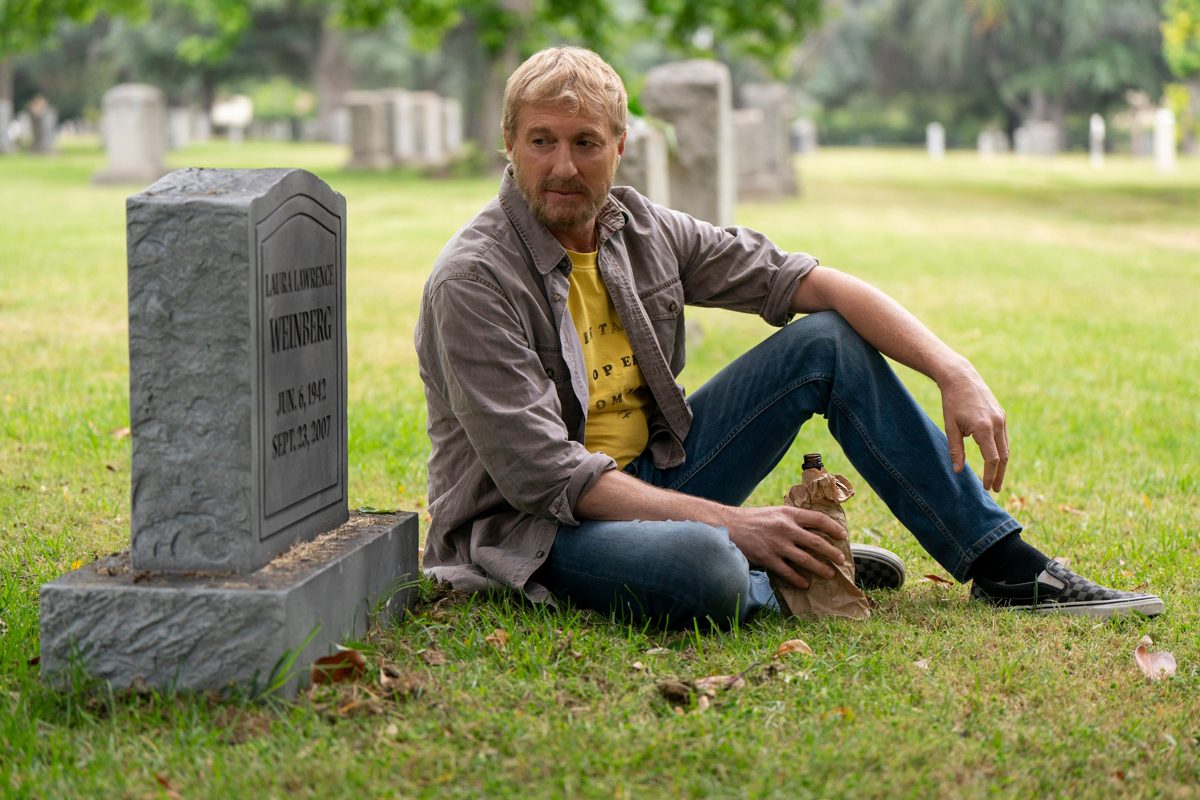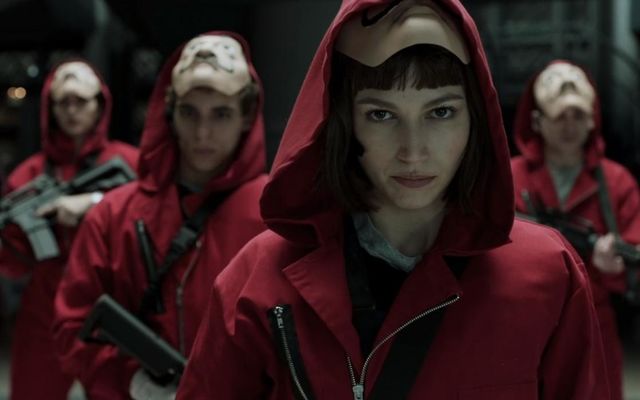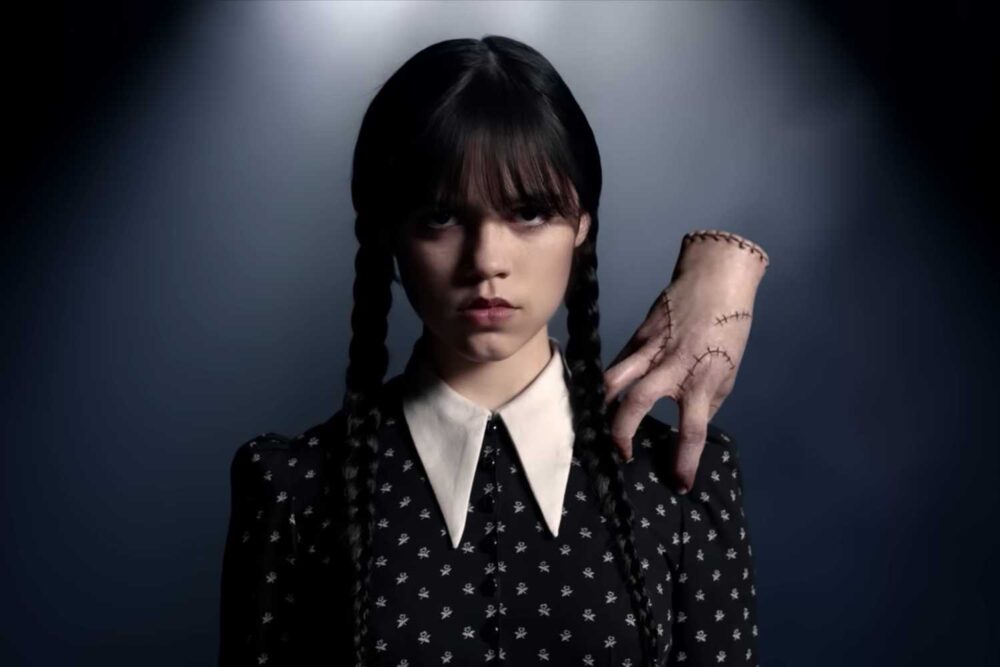The Netflix Cobra Kai Series: Exploring Its Karate Kid Roots

Table of Contents
Characters: Legacy and Evolution
Cobra Kai wouldn't be the success it is without its compelling characters. The show masterfully takes the familiar faces from The Karate Kid and places them in complex, nuanced situations, forcing them to confront their pasts and evolve in unexpected ways.
Daniel LaRusso's Journey
Daniel LaRusso, the underdog hero of The Karate Kid, is no longer a teenager navigating high school bullies. He's a successful businessman, a family man, and the sensei of his own Miyagi-Do karate dojo. However, the shadow of his past, particularly his rivalry with Johnny Lawrence, continues to haunt him.
- His struggles with maintaining his Miyagi-Do dojo: Daniel grapples with the challenges of teaching Miyagi-Do's peaceful philosophy in a world that often prioritizes aggression.
- His family life: Daniel's relationships with his wife Amanda and his children are frequently impacted by his lingering issues with Johnny and the Cobra Kai dojo.
- His evolving karate philosophy: While dedicated to Mr. Miyagi's teachings, Daniel finds himself adapting his methods and confronting the grey areas of self-defense and morality. He learns to integrate elements of both defensive and offensive tactics. This evolution of his karate philosophy is a major element of his character arc within the Cobra Kai storyline.
Johnny Lawrence's Redemption Arc
Johnny Lawrence, the antagonist of The Karate Kid, undergoes a remarkable transformation in Cobra Kai. The series delves into his past traumas and explores the reasons behind his aggressive behavior, revealing a surprisingly complex and sympathetic character.
- His motivations: Johnny's actions are driven by a desire for redemption and a need to prove himself, fueled by the regrets of his past. He's looking for a way to escape the self-destructive cycle he finds himself trapped in. He also seeks to reclaim his past.
- His flawed teaching methods: Johnny's Cobra Kai dojo reflects his own troubled past, emphasizing aggressive and sometimes ruthless tactics. However, he also exhibits moments of unexpected compassion and mentoring skills.
- His relationships with his son Robby and Miguel: Johnny's relationships with his son Robby and his student Miguel are central to his character development, showcasing both his flaws and his potential for growth.
New Generation of Fighters
Cobra Kai introduces a new generation of fighters, each with their own unique stories and connections to the original characters. These characters add fresh dynamics to the ongoing rivalry, keeping the series vibrant and engaging.
- Miguel Diaz: A loyal Cobra Kai student who finds himself caught in the crossfire between Johnny and Daniel.
- Robby Keene: Johnny's estranged son, who initially joins Cobra Kai before finding his own path. His struggles are mirrored by those of his father.
- Sam LaRusso: Daniel's daughter, who becomes a central figure in the conflict between Miyagi-Do and Cobra Kai.
- Tory Nichols: A fierce Cobra Kai student who becomes a formidable opponent to Sam LaRusso. Their rivalry is a central aspect of the series.
- These new characters navigate the intricacies of both dojos, adding a new layer of complexity and conflict to the storyline, building on the original Karate Kid rivalry.
Themes: Exploring Morality and Legacy
Cobra Kai transcends the simple good versus evil dichotomy of The Karate Kid, exploring complex themes of morality, legacy, and the cycle of violence.
The Nature of Good and Evil
The series presents a nuanced perspective on the philosophies of Miyagi-Do and Cobra Kai. Miyagi-Do emphasizes self-defense and pacifism, while Cobra Kai advocates for a more aggressive, "no mercy" approach. However, Cobra Kai demonstrates that neither philosophy is entirely "good" or "evil," with both having the potential for both positive and negative outcomes depending on the context.
- Examination of the philosophies of Miyagi-Do and Cobra Kai: The show explores the strengths and weaknesses of both approaches, acknowledging their grey areas.
- The consequences of violence: The series shows the far-reaching consequences of violent acts, highlighting the importance of making responsible choices.
- The importance of mentorship: The show emphasizes the significant role that mentors play in shaping their students' lives, both positively and negatively.
The Cycle of Violence
A central theme is the cyclical nature of violence and the difficulty of breaking free from the past. The series portrays how past traumas and unresolved conflicts can perpetuate a cycle of aggression, impacting generations.
- How past traumas affect present actions: The show demonstrates how the characters' past experiences directly influence their present behavior, perpetuating harmful cycles.
- The importance of forgiveness: Forgiveness is presented as a vital element in breaking the cycle of violence and finding personal peace.
- The potential for redemption: The show shows that even flawed individuals can find redemption and break free from harmful patterns of behavior.
Production: Maintaining the Spirit of the Original
Cobra Kai successfully balances nostalgia with innovation, paying homage to the original films while adapting the themes and ideas for a modern audience.
Homages and Easter Eggs
The series is filled with clever references and callbacks to The Karate Kid, delighting fans with nostalgic touches.
- Specific examples of scenes, lines, and characters: The show cleverly incorporates elements from the original movies, creating a sense of continuity and rewarding viewers' attention to detail. Many scenes and lines directly echo moments from the original Karate Kid trilogy, enhancing the viewing experience for those familiar with the films.
- Recurring themes: Specific musical cues or recurring plot points cleverly echo the original films, effectively bridging the gap between generations of viewers.
Modern Updates and Adaptations
While respecting its source material, Cobra Kai updates the story and themes to resonate with a modern audience.
- Differences in social commentary: The show addresses contemporary social issues such as bullying, social media, and family dynamics.
- Character portrayals: The show provides deeper and more complex character portrayals than those featured in the original Karate Kid films.
- Storylines: The storylines are far more intricate and multi-layered than those of the original films.
Conclusion
Cobra Kai is more than just a nostalgic reboot; it's a thoughtful exploration of the themes and characters introduced in The Karate Kid, expanding upon them in surprising and compelling ways. By examining the evolution of its characters, the complexities of its morality, and its clever homage to the original films, Cobra Kai creates a rich and engaging narrative that will resonate with both longtime fans and new viewers. If you haven't already experienced the thrilling world of Cobra Kai, start watching today and discover for yourself the captivating legacy of this iconic franchise! You won't be disappointed by this compelling extension of the Cobra Kai story. Embrace the Cobra Kai legacy and dive into the action today!

Featured Posts
-
 Addressing The Challenges Posed By Wolves In Bartons North State
May 23, 2025
Addressing The Challenges Posed By Wolves In Bartons North State
May 23, 2025 -
 Zimbabwe Triumphs Historic Test Victory Over Bangladesh
May 23, 2025
Zimbabwe Triumphs Historic Test Victory Over Bangladesh
May 23, 2025 -
 Big Rig Rock Report 3 12 96 Understanding The Rocket Phenomenon
May 23, 2025
Big Rig Rock Report 3 12 96 Understanding The Rocket Phenomenon
May 23, 2025 -
 Sam Cook England Test Debut Against Zimbabwe
May 23, 2025
Sam Cook England Test Debut Against Zimbabwe
May 23, 2025 -
 Grand Ole Opry A Royal Albert Hall Premiere
May 23, 2025
Grand Ole Opry A Royal Albert Hall Premiere
May 23, 2025
Latest Posts
-
 Un Nou Serial Netflix Cu O Distributie All Star Ce Asteptari Sa Avem
May 23, 2025
Un Nou Serial Netflix Cu O Distributie All Star Ce Asteptari Sa Avem
May 23, 2025 -
 Netflix Serialul Cu Distributie De Oscar Care Va Cuceri Publicul
May 23, 2025
Netflix Serialul Cu Distributie De Oscar Care Va Cuceri Publicul
May 23, 2025 -
 Distributie De Vis Pe Netflix Serialul Care Redefineste Standardele
May 23, 2025
Distributie De Vis Pe Netflix Serialul Care Redefineste Standardele
May 23, 2025 -
 Milly Alcocks House Of The Dragon Acting Coach The Full Story
May 23, 2025
Milly Alcocks House Of The Dragon Acting Coach The Full Story
May 23, 2025 -
 Noul Serial Netflix O Distributie De Oscar Si O Poveste Captivanta
May 23, 2025
Noul Serial Netflix O Distributie De Oscar Si O Poveste Captivanta
May 23, 2025
